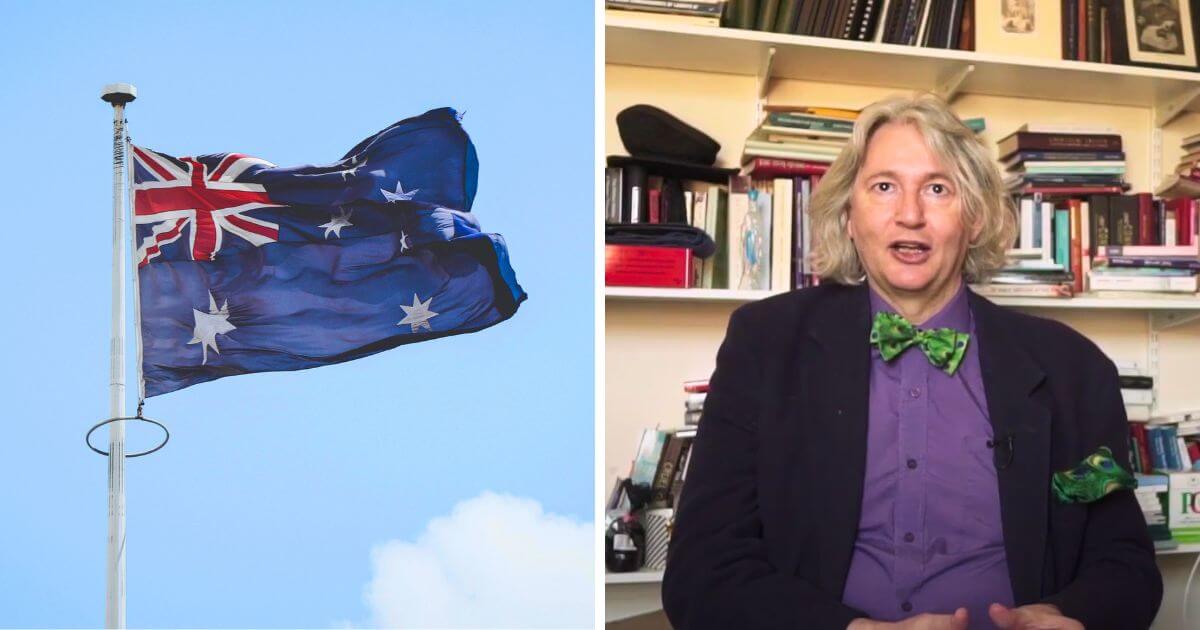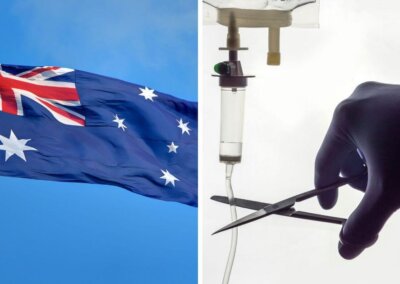The use of “heavily skewed” and “very limited” evidence from Australia to inform the debate on assisted suicide in England and Wales has been characterised as “problematic” according to a new report.
The report “Wrong Side of the World: The Misplaced Reliance on Australia in the UK Debate on ‘Assisted Dying’” by Professor David Albert Jones, Director of the Anscombe Bioethics Centre in Oxford, notes the heavy reliance on testimony from assisted suicide supporters from Australia on the assisted suicide Bill Committee where six out of eight witnesses invited from outside the UK were from Australia.
The six Australian witnesses who gave evidence to the Committee at the end of January – Dr Greg Mewett, Dr Cam McLaren, Dr Clare Fellingham, Dr Chloe Furst, Professor Meredith Blake, Alex Greenwich – all support assisted suicide and euthanasia, and some are directly involved in its provision. Professor Jones argues that these witnesses gave the Committee “a very one-sided view of the limited evidence”.
He went on to point out that “Absent from the evidence sessions in Scotland or in England and Wales were any witnesses who could have provided a critical counter-perspective on Australian law and practice. The evidence presented was purely one-sided leaving the Committees with little or no measure against which to assess the strength of this evidence”.
“Very little evidence from Australia”
In the report, Professor Jones points out that the assisted suicide Bill Committee “did not hear oral evidence from Canada, and neither Committee heard from witnesses from the Netherlands, Belgium, or Switzerland”.
“This is very striking as the US State of Oregon, the Netherlands, Belgium, and Switzerland each have more than twenty years of experience of assisted suicide and / or euthanasia, and Canada has eight years. In contrast, no jurisdiction in Australia or New Zealand has more than five years experience of assisted dying. Other than Victoria, most other jurisdictions have only one or two years of experience”.
According to Professor Jones, this meant that when Sydney MP Alex Greenwich gave evidence on the implementation of assisted suicide and euthanasia legislation in New South Wales, “he was speaking on the basis of less than one full year of data. Thus, a statement such as ‘the experience of voluntary assisted dying is that it has been a form of suicide prevention’ was at best anecdotal. It did not reflect data on evidence of impact”.
Future expansion?
Professor Jones also raised concerns about the future expansion of assisted suicide should it become legal in England and Wales, as there are already indications of this in Australia.
During the oral evidence sessions at the end of January, both Dr Mewett and Dr Fellingham suggested that safeguards were in fact “barriers” to access.
Dr Mewett said “[M]any of those things, such as the gag clause and the waiting period, are really up for challenge. They have been shown not to be safeguards but, in fact, impediments and barriers to equitable and compassionate access to the scheme”.
Dr Fellingham said “I agree with Dr Mewett. They seem like a good idea, but they do tend to be barriers more than safeguards”.
In his report, Professor Jones said “A consistent preference for ‘access’ over ‘safety’ has driven the expansion of Australian legislation”.
“The concern to remove so-called ‘barriers to access’, which is clearly at work in the expansion of VAD in Australia, tends to lead to increasing disregard of any social or professional obligation to offer those suffering any alternative other than death. This is evident in discussion of people who feel that, on account of their ill health, they are a burden to relatives or carers”.
“This is known to be a very common reason for requesting death, including in Western Australia where it motivates over 35% of VAD requests. Rather than acknowledge that this is a problem, and that the problem is made worse as access to the means of death is made easier, it is held not to be a problem because such feelings are compatible with ‘capacity’”.
On the release of the report, Professor Jones said “I hope this report will open people’s eyes as to just how quickly safeguards have been eroded or abandoned in Australia”.
“Rather than an example of the law working well it is an example of what happens when you prioritise access over safety. The practice of Voluntary Assisted Dying (VAD) in Australia is rapidly coming to resemble Medical Assistance in Dying (MAiD) in Canada”.
“It is important for parliamentarians in the United Kingdom to realise that once you legalise some form of assisted suicide or euthanasia you open the door to later expansion affecting more people and [leave it] open to more abuse”.
Spokesperson for Right To Life UK, Catherine Robinson, said “The presence of such a large number of Australian witnesses who all support assisted suicide on the assisted suicide Bill Committee gives some indication of the priorities of the supporters of the Bill. They could have heard from witnesses from other jurisdictions where laws have been in place for much longer, which would have given a better indication of the likely trajectory of any law that might be introduced here”.
“As Professor Jones shows in his report, though, even on the limited available evidence, there are already strong indications of the direction of travel in Australia in terms of the future expansion of the assisted suicide law. MPs should be aware that, if made legal here, England and Wales could well head down a similar path and must vote against its introduction”.












